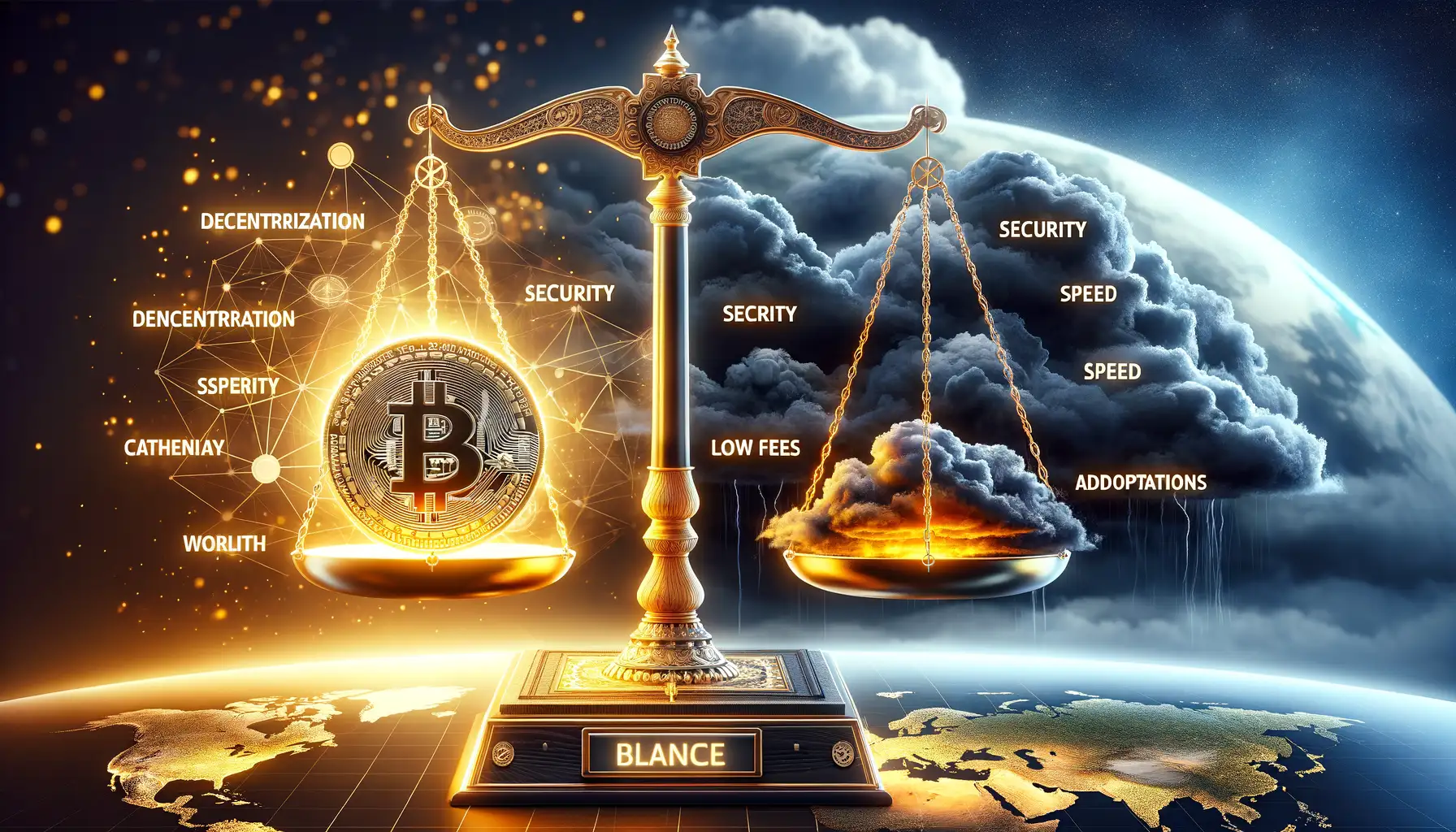Understanding Cryptocurrency and Traditional Coins
Diving into the Worlds of Digital and Physical Money
Imagine holding a shiny, jingling coin in your hand—its weight, texture, and history are tangible. Now, swap that metal coin for a string of complex code stored digitally. Welcome to the fascinating comparison between traditional coins and cryptocurrency: two forms of value, separated by centuries of innovation.
Let’s break it down. Traditional coins—like USD quarters or euros—are backed by governments, physical banks, and a long-standing trust system. Cryptocurrencies? They throw the rulebook out the window! Instead of minting or printing, they exist purely on the internet, powered by blockchain technology, and rely on decentralized systems.
Still wondering how they really differ? Consider this:
- Traditional coins can be touched, saved in a piggy bank, or tossed into a fountain for luck.
- Cryptocurrency is purely digital—it needs a wallet app, not your typical leather wallet.
- The value of traditional money is largely governed by central banks. Crypto? It rises and falls in value based on global demand. No middleman!
Both have their own stories and purposes. One is steeped in centuries-old tradition; the other is writing the rules as it goes—an intriguing blend of stability versus disruption.
Key Differences Between Cryptocurrencies and Traditional Currencies

What Makes Crypto Stand Out from Traditional Money?
Dive into your wallet for a moment—whether it’s stuffed with crisp dollar bills or shiny coins, what you’re holding is a physical, government-backed promise. But *cryptocurrency*? It’s like money was beamed into the future and decided to live in cyberspace. Let’s explore how these two financial worlds couldn’t be further apart.
- Tangibility: Traditional currencies are tangible. You can hold them, stash them under a mattress, or make it rain (if you’re feeling flashy). Cryptocurrencies exist only digitally—think of them as virtual tokens dancing on a blockchain.
- Backbone: Fiat currency has central banks pulling the strings. Meanwhile, cryptocurrencies operate on decentralized networks, governed by code and community. No middleman. No gatekeeper.
- Scarcity & Supply: While governments can print more money (and sometimes too much), currencies like Bitcoin are capped—only 21 million will ever exist. Scarcity, meet finance.
Trust: Numbers vs. Institutions
Here’s where things get personal. Trust in traditional currencies hinges on institutions—banks, governments, and economic histories. But with cryptocurrencies, trust stems from pure math. Sophisticated algorithms guard every transaction, making fraud nearly impossible. Imagine an uncrackable safe that billions share but no one owns—that’s the magic here.
Traditional money feels stable in your hand, but crypto? It’s like a bold leap of faith into tomorrow.
The Evolution and Growth of Cryptocurrency

From Niche Experiment to Global Phenomenon
Cryptocurrency didn’t simply appear overnight—it was born out of radical ideas and a thirst for transformation. Picture the financial world in 2009: trust in centralized systems was crumbling after the global financial crisis. Then came Bitcoin, introduced by the mysterious figure (or group) known as Satoshi Nakamoto. A digital currency, outside the grip of banks and governments? It sounded like science fiction.
In its early days, Bitcoin was like a tiny cult band—loved by tech enthusiasts and libertarians but barely noticed by the masses. Fast forward a decade, and now it’s more like a rockstar headlining world tours, with thousands of other cryptocurrencies following in its wake. Why? Because blockchain technology, the backbone of cryptocurrency, proved to be a game-changer.
- It enables complete transparency in transactions.
- Intermediaries are cut out, reducing fees and delays.
- Ownership lies completely in your hands—no middleman interference.
But this growth hasn’t just been a straight line upward. With every rise, there were battles—governments trying to regulate it, cybercriminals exploiting vulnerabilities, and skeptics dismissing it as a “bubble.” Yet here we are, witnessing crypto’s unstoppable march toward reshaping global finance.
The Ripple Effect: Industries Transformed
Cryptocurrencies didn’t just stay confined to trading or finance. They’ve woven themselves into sectors as diverse as gaming, real estate, and even art. Ever heard of non-fungible tokens (NFTs)? These blockchain-powered digital assets turned artists into millionaires overnight and redefined concepts of ownership.
Take gaming, for instance. Players now earn actual cryptocurrency from games—essentially monetizing their skills. Or consider international remittances. Where traditional methods struggle with high costs and slow processes, crypto zips money across borders in seconds.
Even governments are getting curious. Countries like El Salvador took the plunge and adopted Bitcoin as legal tender. Love it or hate it, there’s no denying one thing: cryptocurrencies are no longer just “internet money.” They’re shaking up how we value, trade, and interact with wealth.
Advantages and Challenges of Cryptocurrency Adoption

The Thrilling Perks of Crypto
Step into the world of cryptocurrency, and you’ll find a treasure chest of possibilities. For starters, imagine sending money to a friend in another country without pesky bank fees or delays. Thanks to the magic of blockchain technology, cryptocurrencies like Bitcoin make transactions faster and more efficient.
Then there’s the freedom factor. Unlike traditional currencies tied to centralized banks or governments, crypto gives you control. Your digital wallet is your own kingdom—no middlemen, no gatekeepers. And speaking of opportunities, crypto’s global nature breaks down financial borders. Whether you’re a tech-savvy millennial in New York or a farmer in rural India, the world of decentralized finance is wide open.
- Faster, borderless payments
- Full ownership of your assets
- Access to financial systems for the unbanked
The Bumps Along the Road
But let’s not sugarcoat it—crypto isn’t all rainbows and moonshots. Its rollercoaster-like market volatility can be nerve-wracking. One day your investment might skyrocket, and the next, it plummets. Imagine checking your portfolio during breakfast—it’s up! By lunch, it’s down.
And then there’s security. While the blockchain itself is incredibly secure, human error and hacking risks still loom large. Lost passwords? Hacked wallets? These aren’t rare horror stories in cryptoland. Oh, and don’t forget regulatory grey zones; some governments embrace crypto, while others treat it like a rebellious teenager. It’s a landscape constantly shifting under your feet.
Adopting cryptocurrency is an adventure, no doubt. But adventures come with both dazzling views and steep climbs. Are you ready?
Future Prospects and Impact of Cryptocurrency on the Global Economy

Cryptocurrency: A Glimpse Into Tomorrow’s Economy
Imagine for a moment a world where borders vanish—at least in the financial sense. That’s what cryptocurrency is promising. It’s not just an evolution of money; it’s a revolution. Think about how businesses could operate globally without the headache of currency conversions or international bank delays. A startup in Nairobi could seamlessly trade with partners in Tokyo within seconds, bypassing traditional systems altogether.
Governments and central banks are taking notice too. Some see opportunity, experimenting with their own digital currencies (like China’s Digital Yuan), while others feel the pressure from this decentralized powerhouse. What does that mean for us? Potentially faster payments, reduced fees, and more control over our financial lives. But here’s the twist—regulation will shape the outcome. Will global economies embrace it, or battle to maintain hold over traditional systems?
- Emerging markets might leapfrog outdated banking systems entirely.
- Financial inclusion for the “unbanked” could rise dramatically.
- Entire industries—think supply chains or real estate—may run smoother with blockchain tech.
The journey ahead is uncharted, thrilling, and full of possibilities. Are we ready to rewrite the rulebook?